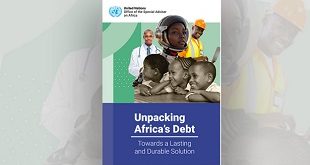
A perfect getaway on a weekend would definitely be out of town; an escape from the loathly traffic jam and pollution in the city. Within the context of finding such retreat, Ndegeya Community of the Arts, births a novel fully packaged art weekend program dubbed Masaka Arts Weekend intended to create avenues of participation, engagement and awareness between art, artists and public. Dominic Muwanguzi attended the inaugural event and writes.
ART | DOMINIC MUWANGUZI | On a rather chilly but brisky Saturday afternoon in the middle of Masaka town, an art gallery: Mfano Art gallery, has just opened. The white washed walls of the gallery space are adorned with artworks in different sizes and genres: conceptual, impressionistic and figurative art; worked on in different medium. The art on display evokes the young artists ambitious experimental undertakings.
Outside, on the terrace of the house over looking the small garden, a band is playing a timeless classic of Don Williams’ We got Love and as the song is artfully belted out, a small crowd of us revelers including artists and art aficionados are either singing along or dancing to the melodious music. Within this confluence of music and dance, some people in the crowd have picked up brushes and paint and are getting busy on the blank canvases which are mounted on the easels. They want to communicate their emotions and feelings through visual imagery.
This is the tempo at the first edition of Masaka Art Weekend hosted by Ndegeya Community of the Arts. At this fete everyone is excited and the anticipation is that the mood will be carried forth to Ndegeya village where the bonfire and the camping are expected to be the last activity to windup the long day. Unfortunately, because of the earlier downpour of the rain, the much-anticipated bonfire will not be taking place this evening, but still, this doesn’t dampen the spirit of the revelers. To fill the void of the campfire, some of the crowd retreat to the large shade oppositely standing next to the camping tents and cottages. To while away the chilly hours of the evening, the group plays a game of cards as they indulge in light conversations about their art and private life. The chats are easily fueled by the rather crisp beer being sipped on. Soon the banter slowly dies down as one by one some of us retreat to our tents to catch some sleep. Soon the morning will come to give way to another calendar of activities of the day.
The Sunday morning sun, quickly dries way the fatigue of yesterday. Before breakfast is served, we take a tour of the Ndegeya Arts Community Center involving an interaction with the local community, the public art on the community buildings and the artists’ studios under construction. At each of the venues we stop over, the excitement is in palpable. The locals greet us with open arms and a few don’t hesitate to take pictures with us, while others will gaily show us the murals on the shops. This reception is evident that the Arts center has excelled in creating meaningful conversations about art with the local community. To the community here, art is not something that exists in the gallery or consumed by the white people. Otherwise, it a functional aspect of everyday life which has changed people’s life through creating community awareness on education, livelihood and identity.
But it is the artists’ studios that definitely give the Center a novel identity completely legitimizing it as an Artists’ Village. The studios lined up on the street with artistic architectural design befittingly described as artworks. Besides their unique exterior design, the interior provides an exquisite space to create art. The studios are self contained with a sitting area, bedroom, kitchen and bathroom. This set up is arguably one that has not been seen anywhere on the local art scene.
“It is to empower the creative practice of the artists. Artists need professional studios to work from in order to create professional work,” comments Collin Sekajugo the architect of these fabled studios and founder of Ndegeya Community of the Arts. fabled
The connection between all these projects including the artists studios, mural painting, Weaverbird Artists’ Residency and Masaka Art gallery is art with a social consciousness. This philosophy of social consciousness in art spreads out to this fiesta called Masaka Art Weekends which Sekajugo already asserts is going to promote Masaka as a popular destination for art in Uganda. Obviously, there’s certainly less doubt about this assertion especially with the success of the inaugural edition of the event. It did engage, create awareness and excite the public and left them asking when the next edition will be.
 The Independent Uganda: You get the Truth we Pay the Price
The Independent Uganda: You get the Truth we Pay the Price


